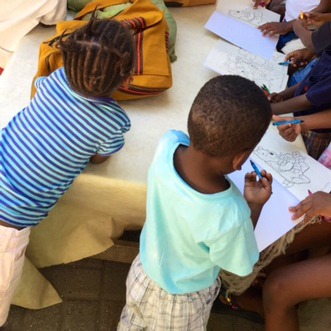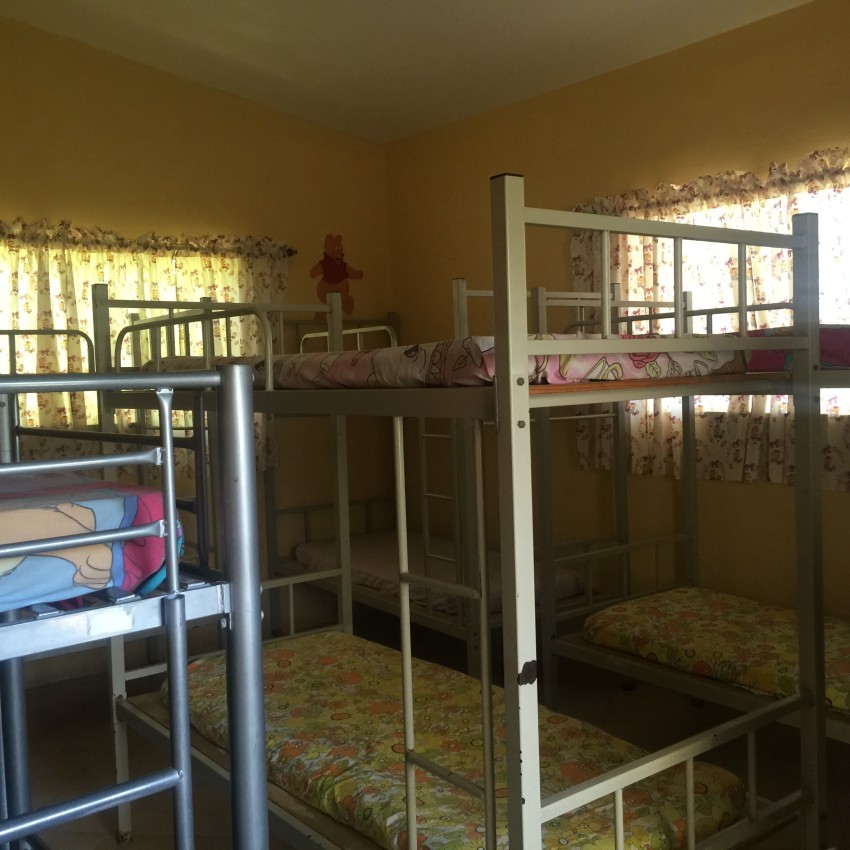We have previously shared about how Haiti’s transition to the Hague Convention has changed the adoption process. This September, two members of our MLJ Adoptions team, Jen Gavin and Nicole Skellenger, traveled to Haiti to meet with adoption professionals in country, visit crèches and meet with the U.S. Embassy in Haiti.
 One highlight of the Haiti trip was the opportunity to meet with the central authority, IBESR. During this meeting, the discussion focused on the quota system, birth parent preparation and training, crèche licensing, cost of care/crèche donation, child dossiers, case processing, post-adoption reporting and the future of international adoption in Haiti. Our team appreciated the significant amount of time that IBESR spent with them.
One highlight of the Haiti trip was the opportunity to meet with the central authority, IBESR. During this meeting, the discussion focused on the quota system, birth parent preparation and training, crèche licensing, cost of care/crèche donation, child dossiers, case processing, post-adoption reporting and the future of international adoption in Haiti. Our team appreciated the significant amount of time that IBESR spent with them.
We confirmed the quota system that each authorized agency may submit one dossier per month. Each authorized agency also has an additional ten dossiers to submit specifically for children with “special needs.” Haitian law defines special needs as “children with behavior troubles or suffering from a trauma, or having a physical or mental incapacity, or being older than six or are members of a sibling group.” MLJ Adoptions currently has three dossier spots available and seven additional available for children with “special needs” until September 2016.
IBESR continues to be committed to birth parent preparation. The birth parent training ensures that parents who wish to place their child with an adoptive family fully understand the consequences of that permanent decision. They must do at least three training sessions and may have to do additional training sessions at the discretion of IBESR.
IBESR shared about the crèche licensing process which includes dossier submission review and regular visits to the crèches. IBESR indicated that many crèches have closed, approximately 120 this year. It seemed that the majority of closures were because the crèches lacked resources to care for the children to the standard set by IBESR. The US Embassy confirmed the closure of the approximately 120 crèches. It is important to remember that just because a child lives in a licensed crèche does not mean that the child will be receiving care in a manner that we in the US would find to be of quality.
When matched with a child, families begin paying crèche fees. The fees vary from crèche to crèche. These crèche fees may be allocated towards the crèche as a whole because IBESR is not currently requiring that the fees are used towards the care of a specific child. We have also enlisted a Haitian team member to travel to the crèches monthly to obtain update photos of the children that will be sent to our families.
IBESR also indicated that a database has been developed to allow for case tracking by adoption service providers. This database has already been presented to Haitian adoption attorneys. The goal is to more efficiently process cases and to allow adoptive parents access to updates on their cases in a timelier manner.
 In addition to meeting with IBESR, our team also attended a meeting at the U.S. Embassy. At this meeting, we were able to gain more understanding of how the immigration process will change as Haiti continues to transition to being a Hague Convention Country. While the country has fully adopted the Hague Convention, some cases continue on under the old process. As Haiti begins to issue referrals for families who filed the I-800A, and will file the I-800, the US Embassy will begin doing the preliminary investigation to determine that the child will qualify for international adoption under the US requirements.
In addition to meeting with IBESR, our team also attended a meeting at the U.S. Embassy. At this meeting, we were able to gain more understanding of how the immigration process will change as Haiti continues to transition to being a Hague Convention Country. While the country has fully adopted the Hague Convention, some cases continue on under the old process. As Haiti begins to issue referrals for families who filed the I-800A, and will file the I-800, the US Embassy will begin doing the preliminary investigation to determine that the child will qualify for international adoption under the US requirements.
Our team was able to see a small sample of the varying degrees of care provided to children during our visits to the crèches. The crèches that our team had the opportunity to visit, which included the two crèches where the children who were recently matched with MLJ families reside, were not the worst we had seen, but it is quite clear that there was a significant lack of resources. Families are drawn to adopt from Haiti because of the great need for families for these children. Part of why the need is so great is because of the severe lack of resources in the country, which does not lead to ideal care. It will be a continued struggle to work with these crèche’s to make efforts and encourage them to improve their care, specifically medical care. It was so clear that the children are in great need of a family.
For more information on adopting from Haiti, please contact us.
